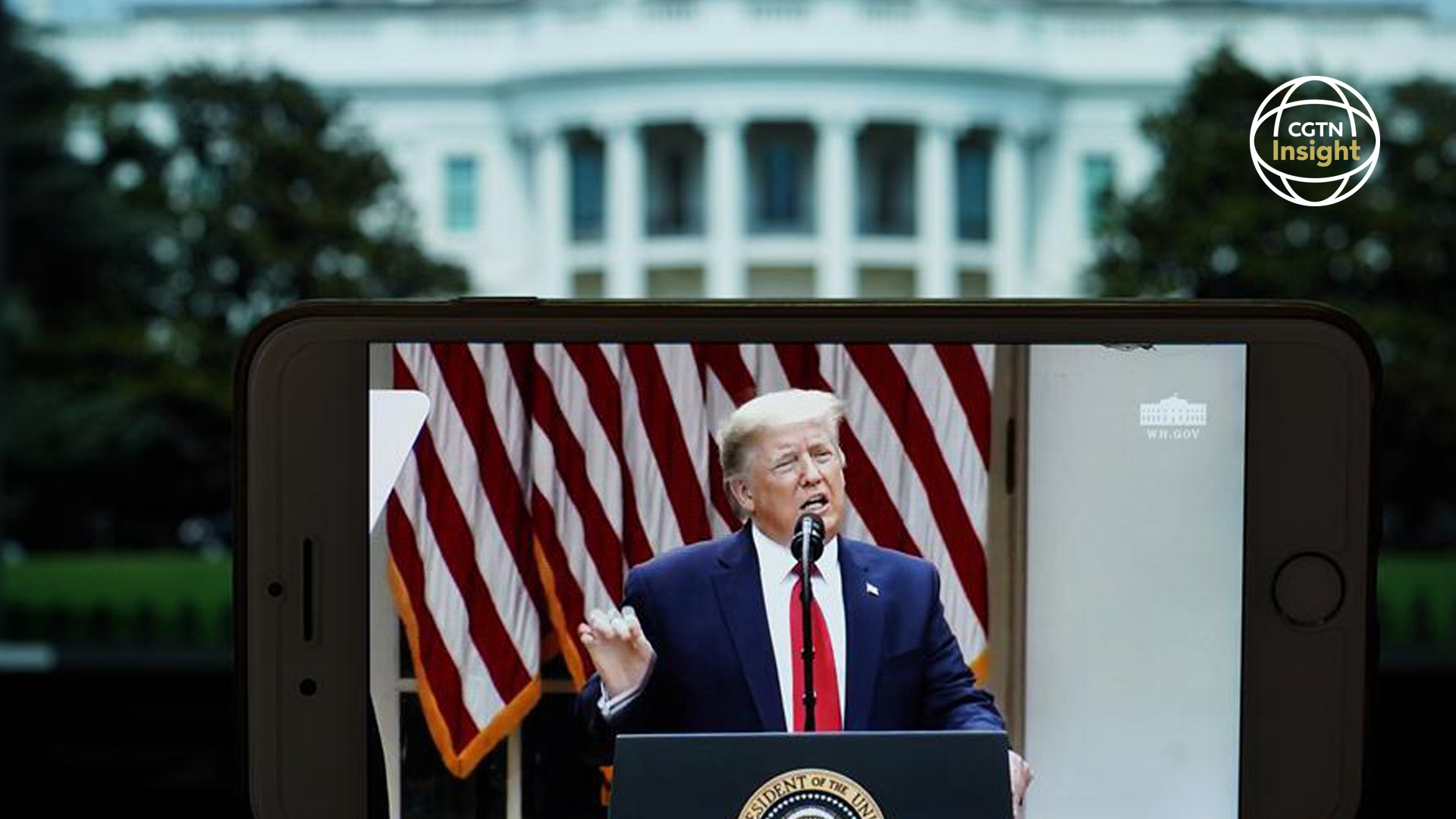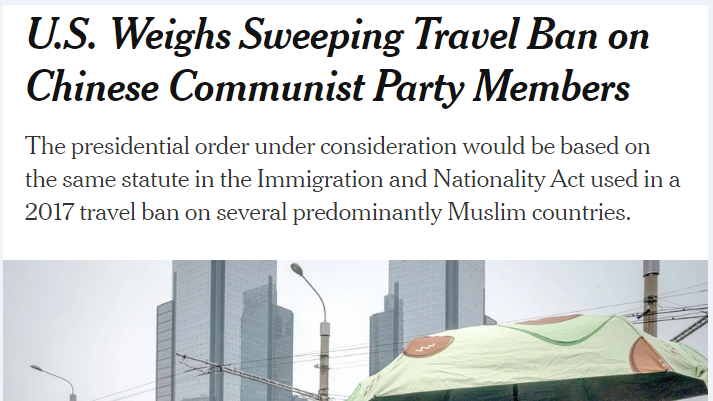
The Trump administration has lost all sense of reason.
No one doubts that the United States has had an uneasy relationship with China recently, but Washington's anti-Beijing approach has devolved into a haphazard campaign of madness over the past few days.
Last Sunday, White House adviser Peter Navarro indicated President Donald Trump would take "strong action" against Chinese apps TikTok and WeChat for alleged "information warfare."
On Monday, the U.S., after sending two aircraft carriers to the South China Sea, labelled China's claims to offshore resources in the waters "completely unlawful."
On Tuesday, Trump signed the Hong Kong Autonomy Act and ordered an end to the city's special status. On the same day, Trump claimed credit for the UK's Huawei ban: "I talked many countries out of using it [Huawei]: If they want to do business with us, they can't use it."
On Wednesday, reports emerged that the White House is weighing a sweeping travel ban on members of the Communist Party of China (CPC) and their families. Those already in the U.S. could face expulsion.
The administration has lost all perspective on China.
The president's tough rhetoric is not new. But such scattergun attacks are absurd. The potential travel ban, in particular, is entirely illogical. The CPC has 92 million members. With their families included, more than 100 million people from all walks of life — doctors, scientists, teachers among others — could be blocked from visiting the U.S.
This is madness.
Clearly the United States views China's development as a threat to its own global dominance. In a desperate effort to relive its past glories, Washington under Trump has fabricated lie after lie in an attempt to contain the growth of China as well as its private tech firms like Huawei, TikTok and others.

Screenshot of The New York Times article on the United States' possible ban on CPC members.
Screenshot of The New York Times article on the United States' possible ban on CPC members.
And electoral calculations also lie behind Trump's anti-China rhetoric. Without achievements to campaign on and trailing in the polls, deflecting blame for his own failures on COVID-19 handling, racial justice and the economy is an uninspiring yet unsurprising tactic.
Playing the China card is a naked attempt to excite the president's core voters. Acting tough on Beijing, Trump hopes to portray strength to a right-wing base. But a cursory glance at these measures suggests they're little more than self-defeating posturing.
For anyone thinking with logic, it's impossible to view this anti-China hysteria as anything but weakness. And it is American citizens who will pay the price.
Take Huawei as an example. The market suggests the employee-owned company, with lower prices and higher efficiency than its counterparts, ought to be one of the first picks by Western countries.
But the White House has repeatedly accused the Chinese tech firm of being a threat to national security, without providing any bit of evidence. The ban is entirely a result of politics and a betrayal of the liberal economic order.
This means the U.S. and its followers will be forced to find alternatives with higher prices and lower efficiency. In addition, Huawei's status in 5G construction means the decision to bar the firm will undermine the U.S. ambition to become a global 5G leader. American companies and citizens, not Trump, will pay the bill for higher telecommunications costs and the delays in the country's 5G network rollout.
The Trump administration's provocations on CPC members, social media apps developed by Chinese companies, the South China Sea and Hong Kong will only worsen ties with the world's second largest economy — to the detriment of American taxpayers.
The U.S. once claimed to play a leading role in safeguarding the liberal economic order. But it now insists on a zero-sum and restrictive approach to global affairs. The hegemon has, under Trump, repeatedly disappointed the world. A new YouGov poll suggests nearly half of Germans believe the U.S. is likely to slip from its position as a leading power in the next few decades, with China moving up to replace it.
The international community expects the leader of the world's only superpower to shoulder responsibilities and be a force for global stability and development; Trump's manic approach achieves the opposite.
(If you want to contribute and have specific expertise, please contact us at opinions@cgtn.com.)